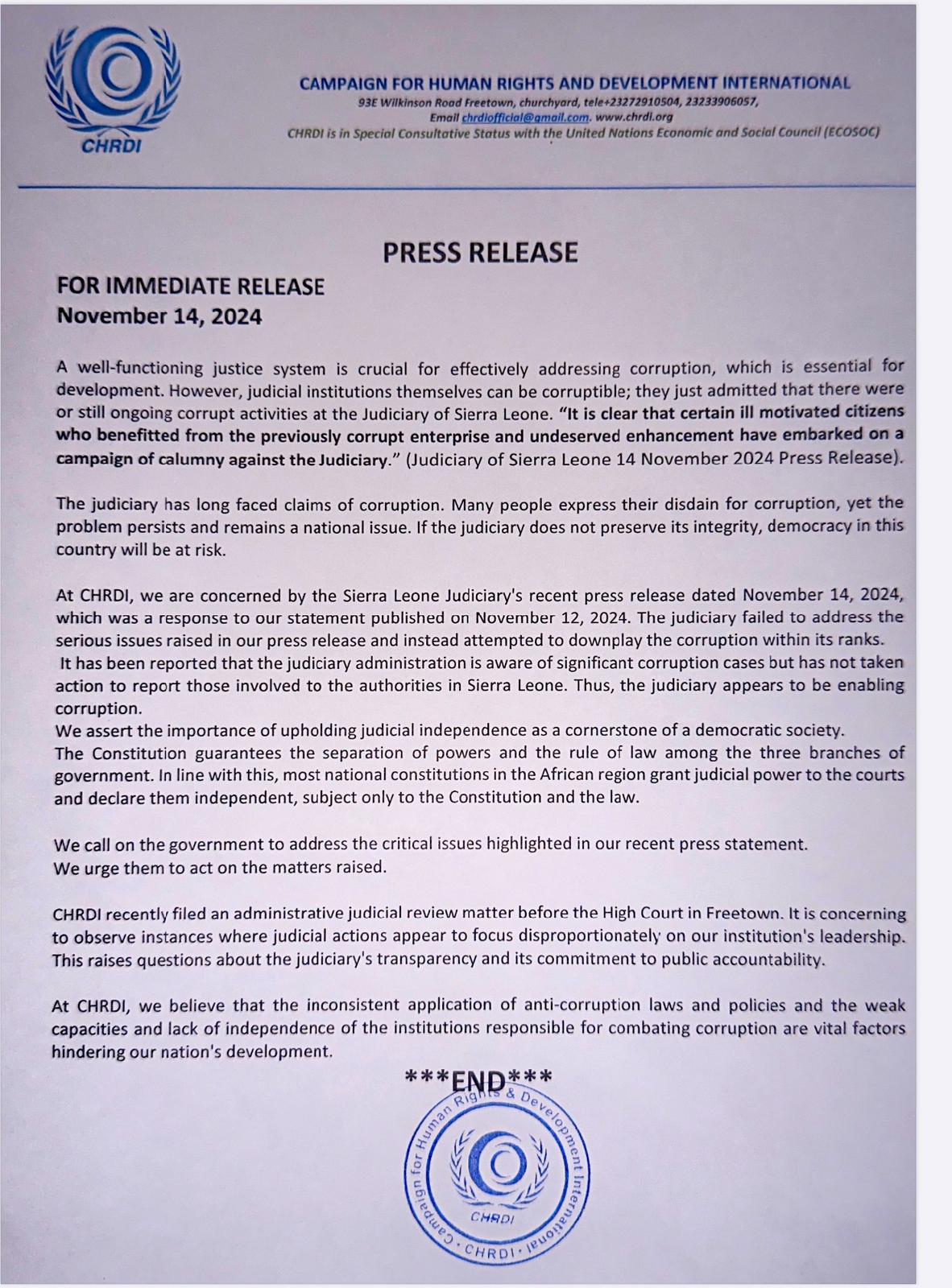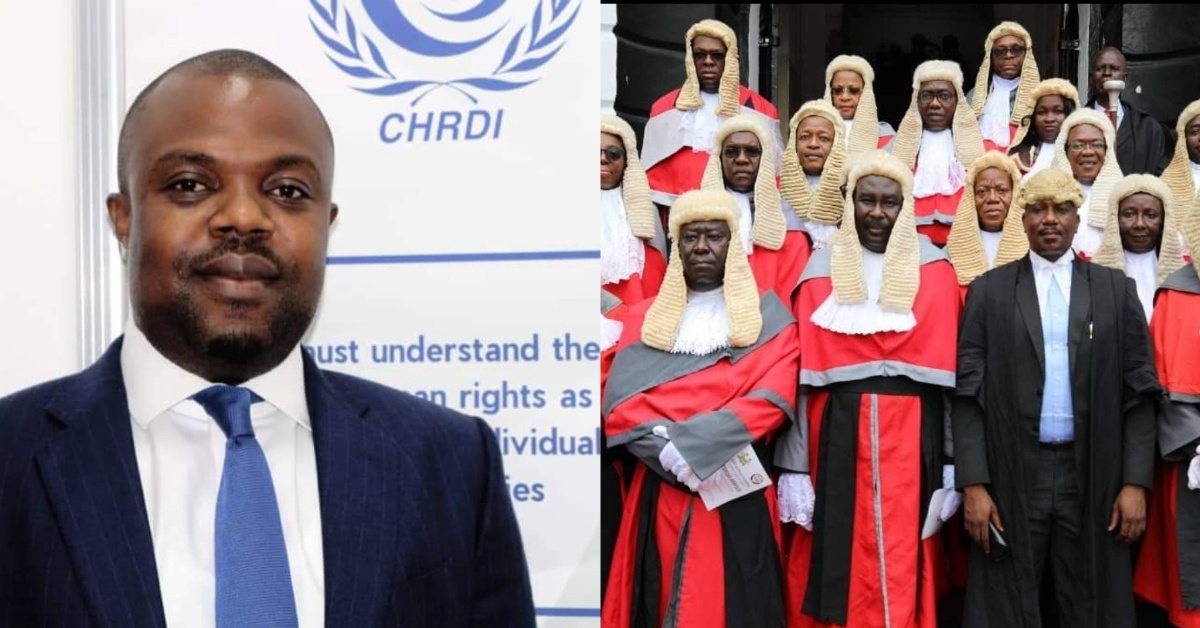The Campaign for Human Rights and Development International (CHRDI) has expressed serious concerns about the state of the judiciary in Sierra Leone, following a press release issued by the judiciary on November 14, 2024, in response to CHRDI’s previous statement on November 12.
The press release from the judiciary acknowledged that corrupt activities had occurred and may still be ongoing within the institution, but CHRDI argues that the response downplayed the severity of the corruption and failed to address the core issues.
In its statement, CHRDI emphasized that a well-functioning justice system is crucial for effectively tackling corruption, which is a key factor in the country’s development.
However, it warned that the judiciary itself is susceptible to corruption, which undermines its ability to combat the very issue it is meant to address.
CHRDI noted that the judiciary admitted to ongoing corruption but accused “ill-motivated citizens” of engaging in a smear campaign against the institution, without addressing the internal corruption that continues to plague the justice system.
CHRDI highlighted its concern that despite reports of significant corruption cases within the judiciary, there has been no action taken to report or prosecute those involved.
This inaction, according to CHRDI, suggests that the judiciary is enabling corruption rather than working to eradicate it. The organization further stressed that if the judiciary does not maintain its integrity, Sierra Leone’s democracy could be at risk.
“Many people express their disdain for corruption, yet the problem persists and remains a national issue,” CHRDI stated. “If the judiciary does not preserve its integrity, democracy in this country will be at risk.”
CHRDI also underscored the importance of judicial independence as a cornerstone of a democratic society. The organization pointed out that the Constitution guarantees the separation of powers and the rule of law, and that courts are meant to operate independently of political influence. Judicial independence is critical to ensuring that corruption is addressed and that public trust in the legal system is restored.
In its recent press release, CHRDI called on the government to take immediate action to address the critical issues raised. It urged authorities to tackle corruption within the judiciary head-on, ensuring that those involved are held accountable.
CHRDI further revealed that it had recently filed an administrative judicial review matter before the High Court in Freetown, which has led to what it describes as disproportionate attention on its leadership from the judiciary. This, CHRDI suggests, raises serious concerns about the transparency and public accountability of the judiciary.
The organization concluded by stating that the inconsistent application of anti-corruption laws and policies, along with the lack of independence of institutions tasked with combating corruption, are key factors holding back Sierra Leone’s development. It urged the government and the judiciary to take meaningful steps to address these challenges and restore public confidence in the justice system.
The public now waits to see whether the government will act on CHRDI’s call and take the necessary steps to address corruption within the judiciary.












